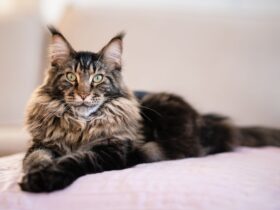The Munchkin cat breed, renowned for its distinctive short legs and playful nature, is one of the most charming and unique feline breeds. Known for its friendly demeanor and lively personality, the Munchkin has gained popularity among cat lovers worldwide. This blog provides an in-depth look into the Munchkin cat breed, covering its characteristics, personality traits, health considerations, and care tips.
Origins and History
The Munchkin cat’s history is as intriguing as its appearance. The breed’s roots trace back to the 1980s in the United States, though its short-legged gene is believed to have appeared in various places throughout history. The name “Munchkin” was inspired by the little people from L. Frank Baum’s “The Wonderful Wizard of Oz.” Despite its modern development, there are records of similar cats with short legs appearing in Europe as early as the 1930s.
Physical Characteristics
1. Leg Length
The most defining feature of the Munchkin cat is its short legs. This trait is due to a genetic mutation that affects the development of cartilage. Munchkins come in two leg-length variations: “standard” (moderately short legs) and “non-standard” (very short legs). Regardless of the length, Munchkins are agile and capable of running and jumping, though they do so differently than their long-legged counterparts.
2. Body Structure
Munchkins have a medium-sized, muscular body with a sturdy build. Their short legs are balanced by a broad chest and a strong, compact body. They have a smooth, graceful movement despite their leg length.
3. Coat and Color
Munchkins come in a variety of coat lengths and colors. Their fur can be short and sleek or long and luxurious. Common coat colors include tabby, solid, bicolor, calico, and more. The breed’s coat is often described as soft and plush.
4. Face and Ears
Munchkins have a rounded head with a broad forehead and full cheeks. Their eyes are large, expressive, and can be of any color. Their ears are medium-sized, rounded at the tips, and set high on their head.
Personality and Temperament
1. Playful and Energetic
Munchkins are known for their playful and energetic nature. They enjoy interactive toys and games that stimulate their hunting instincts. Despite their short legs, they are quite agile and can climb and jump with surprising ease.
2. Affectionate and Sociable
This breed is incredibly affectionate and enjoys spending time with its human companions. Munchkins are known to follow their owners around the house and seek attention and affection. They get along well with children and other pets, making them excellent family pets.
3. Curious and Intelligent
Munchkins are curious and intelligent, often displaying a keen interest in their surroundings. They are quick learners and can be trained to perform tricks or use a litter box. Their intelligence also means they require mental stimulation to prevent boredom.
Health Considerations
1. Genetic Issues
The Munchkin breed does not have significant health issues unique to its leg length, but they can be prone to some common feline health problems. Regular veterinary check-ups are essential to monitor their overall health.
2. Spinal Health
While Munchkins are generally healthy, it’s important to ensure their spinal health is monitored, as the gene that causes their short legs can sometimes affect spinal development. Responsible breeding practices aim to minimize these risks.
3. Weight Management
Maintaining a healthy weight is crucial for Munchkins. Obesity can exacerbate potential spinal issues and affect their overall well-being. A balanced diet and regular exercise are essential for keeping your Munchkin in good health.
Care and Maintenance
1. Grooming
Grooming needs vary depending on the coat length. Short-haired Munchkins require minimal grooming, while long-haired ones need regular brushing to prevent matting and tangles. Regular grooming also helps reduce shedding and keeps their coat in good condition.
2. Diet and Nutrition
Feeding a high-quality, balanced diet is vital for a Munchkin’s health. Look for cat food that provides all the necessary nutrients and is appropriate for their age and activity level. Avoid overfeeding, and monitor their weight to ensure they maintain a healthy body condition.
3. Exercise and Play
Despite their short legs, Munchkins are active and need regular exercise to stay healthy and happy. Provide them with a variety of toys and interactive playtime to stimulate their natural hunting instincts and prevent boredom.
4. Regular Veterinary Check-ups
Routine veterinary visits are crucial for monitoring the health of your Munchkin. Regular check-ups can help catch any potential health issues early and ensure your cat remains in optimal health.
Conclusion
The Munchkin cat breed offers a delightful combination of unique physical characteristics and a lovable personality. Their short legs and playful, affectionate nature make them a standout choice for many cat enthusiasts. By understanding their specific needs and providing proper care, you can ensure that your Munchkin cat leads a happy, healthy life. Whether you’re drawn to their distinctive appearance or their engaging personality, the Munchkin is sure to bring joy and companionship into your home.










Leave a Reply